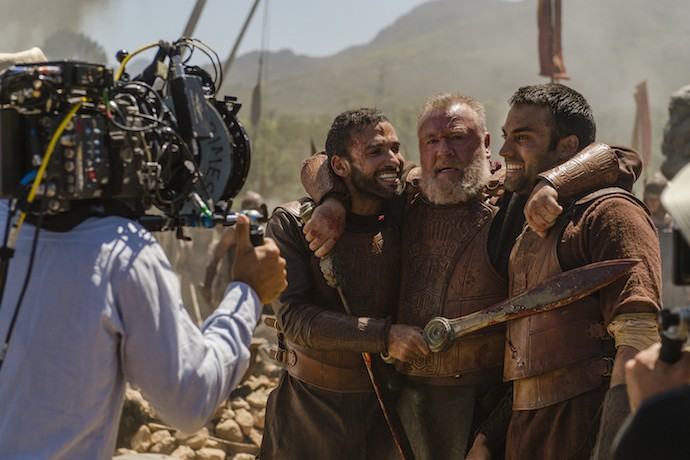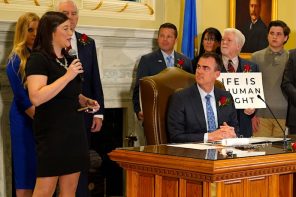In 1984, President Ronald Reagan stated: “Religion and politics are necessarily related. We need religion as a guide. We need it because we are imperfect, and our government needs the church because only those humble enough to admit they’re sinners can bring to democracy the tolerance it requires in order to survive.”
Thirty years later, President Reagan’s words still ring loudly in our collective consciousness. But these words could just as easily have been applied to the world of the Bible 3,000 years ago.
It is precisely this historic and often unavoidable connection between religion and politics that led the three of us—a Christian, a Muslim, and a Jew—to join together to do what many in Hollywood deemed impossible: launch a Biblically-themed network television show about the collision of politics and religion that would appeal to both faith-based and secular audiences.
The show, called Of Kings And Prophets, debuted on ABC on Tuesday, March 8 at 10PM. It tells the story of one of the most complex and beloved characters in the Bible: King David. The biblical David is revered by Jews, Christians, and Muslims alike—nearly half the population of the entire planet—as the model of pious kingship.
Yet, although David has been lionized as pious, God-fearing, loving, and just, he was also deeply flawed. He was vain. He was vengeful. He was lustful. He killed his friends and he betrayed his wives (and he had a lot of wives). This is to say, the Biblical David was human, just like we all are. And as such, he was imperfect. Just as we all are.
This was the character we were interested in exploring: a man who struggled with the same temptations, ethical ambiguities, and questions of faith we all struggle with. A man who was forced to weigh the needs of a nascent nation with the requirements of the Old Testament’s wrathful God. In exploring this character honestly and in all his facets, we wanted to shine a light on the struggle that many of our contemporary religious audience experiences.
In so doing, our approach was to remain as faithful as possible to the scriptures, while at the same time balancing stories of the biblical David with historical research available on David’s kingdom and the world of 1000 B.C. In being faithful to the scriptures, we decided not to shy away from the sexuality and violence that is either implied or explicit in the text. To do so, would sanitize the reality of the biblical time and place, while at the same time bypassing important parallels that we still confront and struggle with today. We made this choice to open a conversation about how one reconciles faith with the realities of the world—whether in ancient Israel or in the contemporary U.S.
We assumed we might be met with some resistance from Biblical literalists, as there is always the chance when dealing with religious material that faith-based audiences might negatively react to our interpretation of scriptural inconsistencies.
Surprisingly though, the most vitriolic criticism has not come from faith-based viewers, but from secular media outlets and bloggers, many of whom argued that the war, violence and brutality depicted in the show would alienate religious viewers. Clearly, these reviewers are unfamiliar with the Bible.
Refreshingly, those who count themselves among the “faithful viewership” have largely embraced the show, commending it for its willingness to look at issues of faith in more than simplistic black and white terms. The world of the Old Testament, as described in the Bible, is often brutal and violent—a world where slavery and rape were the victor’s prerogative, and genocide was an accepted approach to foreign policy. The faithful know this better than anyone.
Today, often with far less at stake, people struggle to stay true to their faith when confronted by the expediency of simply getting through the day. In David’s world, each of these character’s choices had outsized consequences—so much so that we still study them 3,000 years later.
For each of us, we are devoted to our respective faiths, and passionate about our artistry. That’s why we are convinced that if the entertainment industry fails to show faith-based programming, we will miss out on opportunities to explore and understand the rich values and moral complexities that exist at the heart of our religious texts.
It is our hope that secular critics will understand that it is vital to our fabric as a nation to explore our faith through art—to let our values, morals and faith serve as scaffolding for our creativity. That’s what we have tried to do with Of Kings And Prophets.





